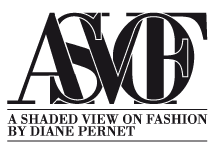After leaving the Royal Conservatory in Brussels because his “vision of music was more open that what the school was providing”, Juriji really began to explore his own musicality that he now describes as a hybrid of electro-pop with lyrical singing. But if you were lucky enough to see him perform at ASVOFF 6, you’d know that there’s even more to Juriji than his unique sound.
“Visuals, stage design and musicality are the vectors of my liberty as a human, not a woman or a man.”
The softly-spoken, ethereal beauty and I discussed his process, inspirations, and ambiguity at the Hotel Marignan in Paris.
How would you describe your musical style?
My goal is to work with vocal ambiguity. When I go to my singing lessons, I sing Vivaldi for example, but it’s for exercise for my body and voice. Personally, my music acts to reinterpret the baroque style with a lyrical melody. Like DJs remix disco songs or something, I reinterpret even older things; I rework these traditions of music.
I write all my own songs and vocal melodies, but the instrumental and mixing I collaborate with other people. I am, above all, the artistic director of my project.
Is there a link between this ambiguity in your music and your open sexual ambiguity?
Exactly. I love vocal ambiguity and musical ambiguity; it’s sensitive. This is the reason I like Yma Sumac so much – there often aren’t even lyrics in her songs. Definitely ambiguity in gender feeds into my music.
I have no defined sexuality. Categories are irrelevant. It’s not my sexuality that defines me but what I do. It’s a project that speaks to me, almost like auto-therapy.
How have people in Belgium and the rest of the world responded to this?
I’m an activist for androgyny and transgender. Society has a lot of bad feelings about anything that challenges the union of man and woman. I personally say nothing to define myself. It’s hard to be defined in some contexts, so I’m ambiguous.
Sometimes people ask me if I want to change sex, but I have no need to change myself. It’s very complex, and there are too many levels of sexuality and gender, so this for me is not something I necessarily need to respond to.
This ambiguity is not only shown in your person and music, but also in your dress…
Well for me, garments are not sexual; it’s just a way to express myself. Garments help to express my narrative process. I wear this [pointing to his grey smock knit dress] because I like clothes. It’s just simple and nothing to do with anything else, just the clothes.
What are your aesthetic inspirations?
I have many inspirations from the post-modern context, like punk and new-wave 80s designers, and also Bowie and Madonna of course, with their strong looks. They are my references of how to be free, basically. Musically, people like Klaus Nomi and Yma Sumac, and baroque and romantic music inspires me. Dance and choreography is also very important to me.
On the theme of ASVOFF 6 that just finished, do you have any poignant film references?
“La Mari





